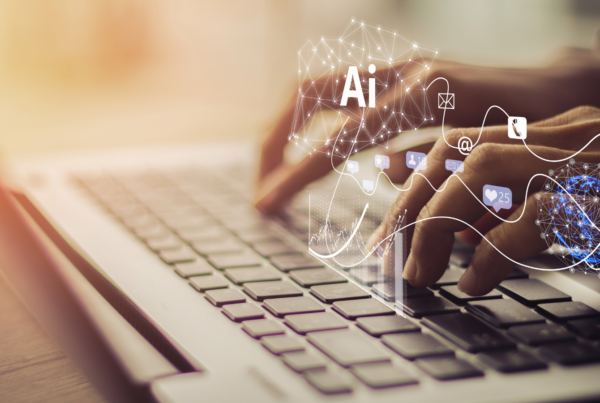I was fortunate that when I got out of law school there were more opportunities for young lawyers to receive mentoring from experienced lawyers. In general, there were more chances to learn how to be a good lawyer. Federal courts used to have oral argument on motions as a matter of course. Very few judges had permanent clerks, and so there was more direct supervision between a judge and his or her clerks.
The greatest value of mentoring, to me, was being guided in how to look at situations. A young lawyer can become intimidated by the simplest thing, usually something that should have been covered in law school (e.g. how to make proper service). A lot of what lawyers do is not that hard. But, since law school only addresses theory (because many professors don't have much practical experience, and because it's more fun to theorize about law than to discuss practical solutions to common problems), young lawyers don't really know much that can help them in the day-to-day practice of law.
But, the next crop of lawyers are in a unique position to graduate armed with practical knowledge that is completely beyond the grasp of most lawyers. I'm talking about litigation lawyers, not transactional lawyers. So, if you're a law student and you might want to litigate when you get out of school, listen up. I'm about to reveal a valuable secret that very few lawyers would tell you (even if they were aware of this in the first place).
Litigation is a battle about who can prove their version of “truth” better than their opponent. Your client, or your client's employees, are not the most reliable sources for proving what actually happened. Documents are much more reliable, mostly because they are inert objects and have no animus or bias. They say what they say, and that's it. So far nothing I've said is controversial or beyond the awareness of most lawyers.
Here comes the part you need to pay attention to.
These days most 'documents' are in digital form, and most lawyers are very uncomfortable dealing with computers, much less digital documents. There are lawyers out there, respected lawyers who are paid a lot of money, who don't read their email on a computer. They have their secretary print out the emails, which of course is insane.
More common, though, are the lawyers who simply don't use computers enough to understand the basic nature of digital information. They barely know how to navigate a common file system, and they certainly don't know that you can search files easily on any computer system. There are lawyers who don't know what the scroll bar is for, so they navigate through their email inbox by using the down arrow repeatedly. And then there are the lawyers who think that spreadsheets are just a grid to organize financial information; they don't realize that the spreadsheet calculates values for them, and so they do that manually (or have their equally tech-unsavvy secretary do it for them).
A few years ago the Federal Rules of Civil Procedure were amended to address so-called 'electronic discovery,' and lawyers dutifully read the rules. Then they assumed that they were ready to deal with discovery of electronic information. Google the phrase “e-discovery and adverse inference” to see how well some of them are doing. (Spoiler alert: not well). But it's not because they haven't read the federal rules.
Most lawyers today don't understand the nature of digital information. And they won't admit that this poses a problem for them. They think that they can be effective as litigators (not to be confused with 'trial lawyers', which is a topic for another post) simply because they're smart and know legal procedure.
But, remember what we said about documents? They matter more than witnesses in most cases, because they aren't as easily discredited. So if you do a better job than your opponent in gathering and organizing documents then you'll have an advantage. If your opponent does such a bad job that you wind up getting the court to give the jury an adverse inference instruction (e.g. tell the jury that they should assume a fact in dispute is favorable to you) then you'll win a case you might not otherwise have won.
Remember that old story about being out on a hike with a friend, and seeing a bear in the distance ready to chase you down and eat you? It makes no sense to stop and put on running shoes if you're thinking you can outrun the bear. But you don't have to outrun the bear. If you can outrun your friend the bear won't be your problem; it'll be your friends (er, former friend) problem. That's why you take the time to put on the running shoes.
So, that's my advice to you. Go learn as much as you can about how to manage digital documents using a computer. Get a scanner (the Fujitsu ScanSnap 1500) and get comfortable with scanning. Get a copy of Adobe Acrobat (student versions are about half the cost of what the rest of us pay), and learn how to manipulate PDFs. Sure, none of this will make you a great lawyer by itself. It will, however, give you an edge over even very experienced lawyers.
That kind of edge is hard to come by, and in the case of digital information it won't last. In a few years there will be lots of people in the legal profession who understand digital information. But until that happens, you can put yourself ahead of the pack. If you're willing to stop and spend the time (and maybe money) to learn a valuable skill, that is.
Use technology to radically improve your law practice by focusing on the few core elements that have the biggest impact.







this is helpful advice! I’m still in first semester of law school. Really wish more emphasis would be placed on acrobat, etc. in the research classes. (Digital documents/scanning/pdf manipulation are not discussed at all, actually). And don’t get me started on the professors who ban laptops in class.